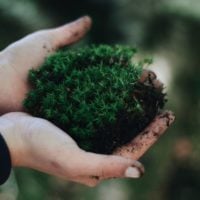Deadline: 09-Jul-21
Applications are invited for Intersex human rights defenders LGBTI Fellowship program that recognises the stigma and discrimination faced by intersex people in their lives and seeks to build the capacity and visibility of an intersex human rights defender with regard to the UN human rights mechanisms and the international human rights law framework protecting and promoting the rights of LGBTI people generally.
OHCHR work on the human rights of lesbian, gay, bisexual, transgender and intersex (LGBTI) people, OHCHR has created a Fellowship programme for LGBTI human rights defenders that supports one LGBTI human rights defender each year to join the OHCHR LGBTI team for a period of 6 months. In 2019, a trans human rights defender joined the team as a Fellow. After a pause in 2020 due to the COVID-19 pandemic, in 2021 the Fellowship will be open to an intersex human rights defender.
OHCHR recognises that intersex people in all regions face specific human rights violations including forced and coerced medical interventions, harmful practices and other forms of stigmatization due to their physical traits, and that there are concerning gaps in laws, policies and actions by States and others to address these human rights violations and protect the rights of intersex people, and that intersex people have fewer opportunities to gain experience in international organizations.
Duties and Responsibilities
- Support the research and analysis of patterns of human rights violations affecting specifically intersex people and more broadly LGBTI people
- Support the implementation of the UN Free & Equal campaign by contributing to the development of public information materials
- Support increased engagement of civil society organizations and human rights defenders working in this field with UN human rights mechanisms including treaty bodies, special procedures and the Universal Periodic Review
- Contribute to the drafting of media releases, newspaper articles, web stories, correspondence, reports, briefing notes, talking points and speeches.
- Contribute to the implementation of OHCHR activities related to the human rights of lesbian, gay, bisexual, transgender and intersex people.
- Contribute to the broader understanding of gender, which is inclusive of intersex and gender non-conforming people, within the overall work of the Section on gender integration.
How it works
- The fellowship, based in Geneva, Switzerland, will run for a period of 6 months.
- The fellow will be based within OHCHR’s Women’s Human Rights and Gender Section.
- The fellowship will be conditional on the successful candidate obtaining a visa for Switzerland. OHCHR will provide a letter to support the visa application and cover the visa fees, but the Swiss authorities decide whether to issue the visa.
- The fellow will receive a monthly stipend of CHF 3,927 to cover living expenses for the duration of the fellowship. (Please note that this is not a regular employment position within OHCHR and it does not lead to employment rights and entitlements beyond the terms of the fellowship).
- OHCHR will provide one economy class return air ticket to and from the country of residence at the start/end of the Fellowship and basic health insurance.
- The fellow will be required to submit a report half-way and at the end of the fellowship, detailing their experience.
- In 2021, the Fellowship will be open to intersex candidates.
Eligibility Criteria
- Should be nominated by an organisation working on the human rights of intersex people;
- Should have 2 years’ experience working on the human rights of intersex people;
- Should be fluent in written and spoken English, which will be the language of the fellowship. Knowledge of any of the other official UN languages will be an added advantage;
- Should commit to disseminating the knowledge and experience gained during the fellowship upon return to their respective organisations and/or country of residence;
- Should be at least 18 years old;
- Should have a valid travel document
Other Criteria:
- Experience and skills relevant to OHCHR’s mandate, including international human rights law, are an asset;
- Experience with an organisation working on the human rights of intersex people and/or LGBTI people more broadly, is an asset;
- Special consideration will be given to geographical diversity.
For more information, visit https://www.ohchr.org/EN/Issues/LGBTI/Pages/FellowshipApplication.aspx









































